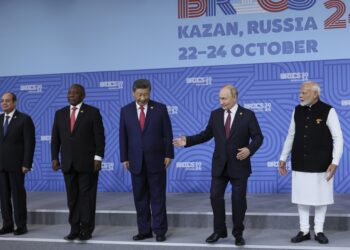The icy Mexican foreign policy toward Cuba over the past two decades could come to an end, after the announcement of the state visit of President Enrique Peña Nieto to Havana, a little over a year after taking the reins of the government.
According to the Foreign Ministry of Mexico, the president will meet in Havana with Cuban leader Raul Castro, during the summit of the Community of Latin American and Caribbean States (CELAC) to be held from January 28 through the 30th.
For many, this event could be the coup de grace of diplomatic reconciliation with Cuba, with which paradoxically never severed its business relations nor changed their position rejecting the U.S. blockade against the Caribbean country.
According to the Secretary of Foreign Affairs for Latin America, Vanessa Rubio, this meeting represents a major renewal of the links between the two governments after last October seven treaties were signed to update the legal framework of the bilateral relationship.
Since the return to the presidency of the Institutional Revolutionary Party (PRI), there have been few approaches between the two states. First, they had the meeting of their presidents in January 2013, during an international meeting in Chile, just a month after Peña Nieto taking possession of his office.
Then in September of that year, José Antonio Meade, Mexican Foreign Minister visited Havana and in November his Cuban counterpart, Bruno Rodriguez, visited the Federal District.
At this meeting, the Cuban minister thanked the historical Mexican support to the condemnation of the U.S. blockade, and suggested updating the economic model of Cuba would be a great opportunity for Mexican entrepreneurs.
During that visit, the Finance Minister Luis Videgaray announced that Mexico condoned Cuba 70 percent of its debt. Nothing more and nothing less than $ 340 million, from a total of 500 million dollars.
“We want to have a close relationship, not only of friendship between our peoples, but economic (…) and this situation was an obstacle for things to flow well,” Videgaray said.
Such a boost for many was interpreted as the beginning of a new era in relations between the two countries, and the possible closure of the disagreements and separations that existed since the late nineties, even with the PRI in the government until late 2012.
After signing the Free Trade Agreement between Mexico and the United States and Canada relations would not be the same. Times of unconditional brotherhood died with this covenant.
In the Ibero-American Summit in Havana in 1998, then Mexican President Ernesto Zedillo took a critical discourse against the island, and the Cuban leader Fidel Castro didn’t let it go, stating that Mexican children knew more of Mickey Mouse than of their national heroes.
The following disagreement occurred when President Vicente Fox of the National Action Party, visited Havana in February 2002 and met with Cuban dissident groups. Soon after, in March, Fidel Castro attended a UN summit in Monterrey, and swiftly left the event.
It was later learned that the sudden departure was due to Fox, to please the United States, pushed for his minimal stay there, and to prove it, the Cuban leader released a recording in which the Mexican president has openly said: “you eat and then you go.”
In 2004 another divergence would embers bilateral relations after deportation for bribery of a Mexican businessman, so Fox, still in office, decided to expel the Cuban ambassador to Mexico.
During the presidency of Felipe Calderon, from 2006 to 2012, tempers calmed, but without any substantial change. After the stormy relations with Fox , the new president adopted a colder policy , but he kept his vote at the UN against U.S. embargo during his term in office.
Still, he fulfilled the promised visit to the island , but only at the end of his term, and had no contact with Cuban dissident groups.
With Peña Nieto and the return of the PRI to Los Pinos, Cuba policy began to become warmer. However, experts say that its turn is cautious.
For Rafael Rojas, from the Center for Economic Research and Teaching of Mexico , Peña Nieto is channeling this matter soberly , but without making sharp movements, or expressing a full understanding with Cuba .
According to Ricardo Pascoe, Mexico’s ambassador in Havana in the early 2000s, when a Mexican president travels to Cuba there are always pressures from Washington to meet with dissidents and to include in his speech human rights statements.
And although it was clear the will to change the current state of bilateral relations, the Mexican president weighs the same dilemma of his predecessors: how to maintain a cordial relationship with Cuba and yet not disappoint the U.S., its main trading partner, and sworn enemy of the Cuban government for over 50 years.










